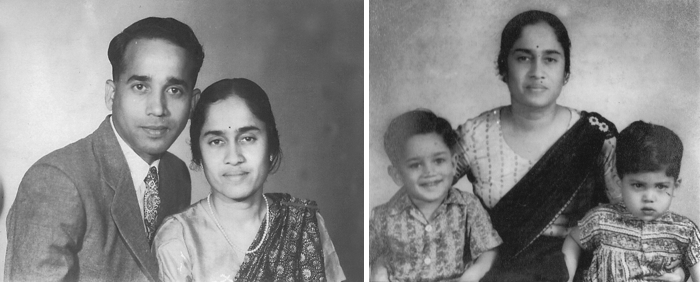Kamala Sohonie: A Trailblazer in Indian Science
Kamala Sohonie, born in 1911, made history as the first Indian woman to earn a PhD in a scientific discipline. Her determination and perseverance opened doors for women in science, challenging the prevailing gender biases of her time.
Family and Early Life
Born into a family of accomplished chemists, Kamala Sohonie was inspired to pursue a career in science. Her father and uncle were among the first graduates of the Indian Institute of Science, setting a high standard for her own academic pursuits.
Clash with CV Raman and Triumph at the Indian Institute of Science
Initially denied admission to the Indian Institute of Science by its then-director, CV Raman, due to societal prejudices against women in research, Sohonie persisted and eventually secured a research fellowship. Her groundbreaking work on the nutritional benefits of palm nectar, known as “Neera,” earned her recognition and a PhD from Cambridge University.
Kamala Sohonie’s 112th Birthday:
In 2023, Google celebrated Kamala Sohonie’s 112th birthday with a Doodle, acknowledging her remarkable contributions to science and her role as an inspiration for generations of women in STEM fields.
Resources in Hindi and Marathi:
To honor her legacy and reach a wider audience, information about Kamala Sohonie’s life and achievements is available in Hindi (कमला सोहोनी) and Marathi (कमला सोहोनी). These resources provide insights into her struggles, her triumphs, and her lasting impact on the Indian scientific community.
Additional Information:
- Kamala Sohonie’s Husband: Kamala Sohonie was married to M.V. Sohonie.
- PDFs and Biographies: Various PDFs and biographies detailing her life and research are available online, offering a deeper understanding of her remarkable journey.
Kamala Sohonie’s story is one of perseverance, determination, and scientific excellence. Her contributions to biochemistry and nutrition continue to be relevant, and her legacy serves as a beacon for aspiring scientists, especially women, across India and beyond.
What was Kamala Sohonie known for?
Kamala Sohonie was renowned for being a pioneering Indian biochemist and the first Indian woman to obtain a doctoral degree in science. Her groundbreaking research in the field of biochemistry laid the foundation for significant advancements in Indian scientific study.
When did Kamala Sohonie achieve her milestones?
Kamala Sohonie achieved her milestones primarily in the early to mid-20th century. She was born in 1912 and completed her doctoral studies at the University of Cambridge in the 1930s. In 1940, she founded the Indian Women Scientists’ Association.
Where did Kamala Sohonie’s journey take her?
Kamala Sohonie’s journey took her from India to the University of Cambridge in the UK, where she overcame gender biases and earned her Ph.D. She returned to India, where she continued her research and teaching, significantly contributing to the field of biochemistry.
Who was Kamala Sohonie?
Kamala Sohonie was a pioneering Indian biochemist and the first woman in India to earn a Ph.D. in science. She made significant contributions to the field of enzymology and nutrition and was a dedicated teacher and mentor. She founded the Indian Women Scientists’ Association to support women in science.
Why is Kamala Sohonie significant in Indian science?
Kamala Sohonie is significant because she broke gender barriers in a male-dominated field, setting a precedent for future generations of women in science. Her research on enzymes and nutrition had a lasting impact on biochemistry, and her efforts to support women scientists helped pave the way for greater gender equality in Indian science.
Whose contributions did Kamala Sohonie build upon?
Kamala Sohonie built upon the contributions of earlier Indian scientists and her mentor, Sir C.V. Raman, although she faced initial resistance from him due to her gender. Her perseverance and subsequent achievements highlighted the importance of inclusion and mentorship in scientific progress.
Kamala Sohonie’s Family and Personal Life
Kamala Sohonie was born into a family that valued education. Her father and uncle were both chemists, which influenced her interest in science. She married M.V. Sohonie, who was supportive of her career.
Kamala Sohonie’s Contributions in Hindi
Kamala Sohonie ke yogdan ka varnan karte hue, unhone Bharat mein rasayan vigyan ke kshetra mein mahatvapurn yogdan diya. Unhone pepsin enzyme par anushandhan kiya, jo protein ke pachen mein mahatvapurn bhoomika nibhata hai. Unhone Indian Women Scientists’ Association ki sthaapana bhi ki.
Kamala Sohonie’s 112th Birthday
Kamala Sohonie’s 112th birthday was celebrated on June 18, 2024, honoring her legacy and contributions to science. Various scientific communities and organizations remembered her achievements and her role in promoting women in science.
Information on Kamala Sohonie in Marathi
Kamala Sohonie chi mahiti Marathi madhye: Kamala Sohonie he pahilya Bharatiya mahila rasayan visharad ho’tya. Tyancha janma 1912 madhe zala ani tyanni Cambridge vishwavidyalayatun Ph.D. padvi milavli. Tyancha anushandhan pepsin enzyme var aadharit hota.
Kamala Sohonie PDF and Resources
For detailed information on Kamala Sohonie, one can refer to various PDFs and resources available online that provide comprehensive insights into her life, research, and legacy. These documents often include her biography, research papers, and historical accounts of her contributions to science.
Kamala Sohonie and C.V. Raman
Kamala Sohonie initially faced resistance from C.V. Raman, who was reluctant to admit her into the Indian Institute of Science due to her gender. However, she proved her capabilities and later earned his respect and support, highlighting the challenges and triumphs of women in science.
Biography of Kamala Sohonie in Hindi
Kamala Sohonie ka jeevan parichay Hindi mein: Kamala Sohonie ne Bharat mein rasayan vigyan ke kshetra mein mahatvapurn yogdan diya. Unhone Cambridge vishwavidyalay se Ph.D. prapt ki aur pepsin enzyme par mahatvapurn anushandhan kiya. Ve Bharat ki pehli mahila thi jinhone vigyan mein doctoral padvi prapt ki.
Kamala Sohonie’s legacy is a testament to her pioneering spirit, her dedication to science, and her efforts to empower women in scientific fields. Her journey is an inspiration for aspiring scientists and a reminder of the importance of perseverance and breaking barriers.
Five things you may not have known about Kamala Sohonie
Kamala Sohonie, a pathfinder for women in research and a pioneering figure in Indian science, played a crucial role in making India great again through her outstanding contributions to biochemistry. Sohonie, born in 1912, surmounted traditional norms and gender obstacles to become India’s first woman to receive a doctorate in science. Her innovative research and relentless efforts in the field of biochemistry not only advanced her own career but also established the groundwork for future advancements in Indian scientific study. Sohonie’s journey serves as an example to all, stressing the necessity of breaking through barriers, pursuing knowledge, and leaving a lasting impact on society. Through her pioneering work, she contributed to the growth and development of Indian science, thus playing an integral role in making India great again.
Kamala Sohonie was a renowned Indian biochemist and the first woman to obtain a doctoral degree in science in India. She made significant contributions to the field of biochemistry and had a remarkable career. Here are five things you may not have known about Kamala Sohonie:
Pioneer in Biochemistry: Kamala Sohonie was a trailblazer in the field of biochemistry in India. She completed her doctoral studies at the University of Cambridge in the 1930s when opportunities for women in science were limited. Her research focused on the nutrition of Indian diets, particularly the role of proteins and vitamins. Her work laid the foundation for future advancements in the field of biochemistry in India.
Overcoming Gender Barriers: Kamala Sohonie faced significant challenges as a woman pursuing a career in science. During her time at Cambridge, she encountered discrimination and bias due to her gender. However, she persevered and became the first Indian woman to earn a Ph.D. in science, setting a remarkable precedent for future generations of women in the field.
Founding the Indian Women Scientists’ Association: Kamala Sohonie recognized the importance of supporting women in science and fostering a supportive community. In 1940, she founded the Indian Women Scientists’ Association, which aimed to provide a platform for women scientists to network, collaborate, and support each other. The association continues to thrive and has been instrumental in promoting women’s participation in scientific research and innovation in India.
Contributions to Enzymology: Sohonie’s research made significant contributions to the field of enzymology. She conducted pioneering work on the enzyme pepsin, which plays a crucial role in the digestion of proteins in the stomach. Her research provided valuable insights into pepsin’s enzymatic activity and kinetics, contributing to our understanding of protein digestion and related medical conditions.
Teaching and Mentoring: Alongside her research career, Kamala Sohonie was also a dedicated teacher and mentor. She held teaching positions at various universities in India, including the Institute of Science in Mumbai. She inspired and guided numerous students in the field of biochemistry, nurturing the next generation of scientists.
Kamala Sohonie’s legacy extends beyond her groundbreaking achievements in biochemistry. She shattered gender barriers, paved the way for women in science, and made significant contributions to the field of biochemistry through her research and mentorship. Her dedication, resilience, and scientific achievements continue to inspire scientists and aspiring researchers in India and around the world.



